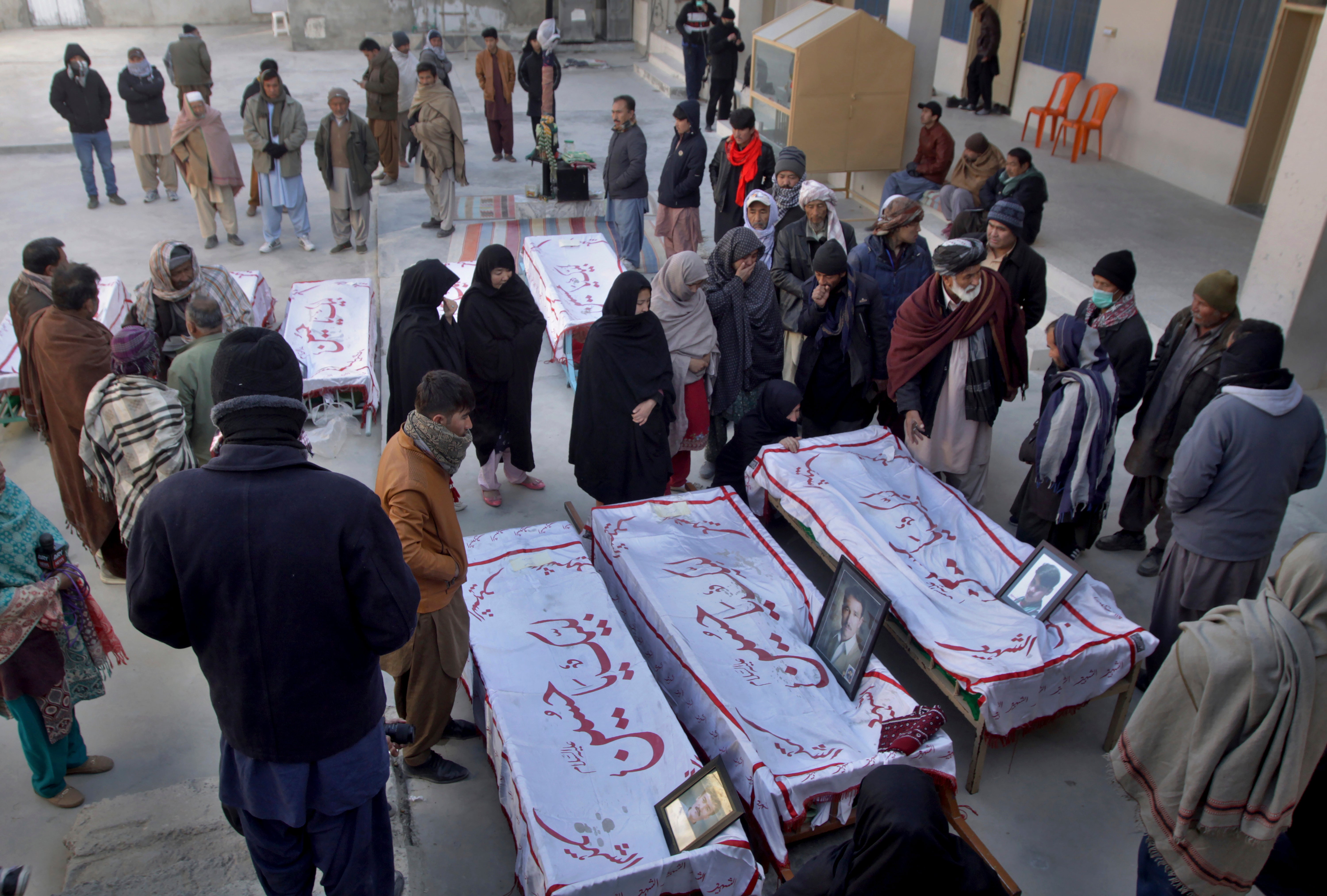Afghan Shiite leader in Pakistan after killings of miners
An influential Afghan Shiite leader is visiting Pakistan where members of the minority sect are still reeling from the brutal killing of 11 Shiite coal miners, nine of whom were Afghan immigrants

Your support helps us to tell the story
From reproductive rights to climate change to Big Tech, The Independent is on the ground when the story is developing. Whether it's investigating the financials of Elon Musk's pro-Trump PAC or producing our latest documentary, 'The A Word', which shines a light on the American women fighting for reproductive rights, we know how important it is to parse out the facts from the messaging.
At such a critical moment in US history, we need reporters on the ground. Your donation allows us to keep sending journalists to speak to both sides of the story.
The Independent is trusted by Americans across the entire political spectrum. And unlike many other quality news outlets, we choose not to lock Americans out of our reporting and analysis with paywalls. We believe quality journalism should be available to everyone, paid for by those who can afford it.
Your support makes all the difference.An influential Afghan Shiite leader is visiting Pakistan where members of the minority sect are still reeling from the brutal killing of 11 Shiite coal miners, nine of whom were Afghan immigrants, earlier this month.
The miners, who were abducted and killed by militants from the Islamic State group in southwestern Baluchistan province, were members of the minority Hazara. They were buried on Saturday, following a week of protests in Pakistan that sought to highlight the community's plight.
The visiting Afghan leader, Karim Khalili is also an ethnic Hazara. Members of the mostly Shiite community live in both Pakistan and Afghanistan and have suffered persecution from the majority Sunni Muslims in both countries.
The Sunni militant Islamic State group, which is headquartered in Afghanistan's eastern Nangarhar province bordering Pakistan, as well as Pakistani Sunni militant groups have repeatedly targeted Shiites.
Khalili's visit is seen as part of an effort to repair the troubled relations between the two neighboring countries in parallel with the peace talks underway in Qatar between the Afghan government negotiators and the Taliban. The warring sides are trying to find a political roadmap that would bring an end to decades of war in Afghanistan.
Khalili's visit is part of Pakistan’s policy “to reach out to political leadership in Afghanistan to forge common understanding on the Afghan peace process," Pakistan's foreign ministry said in a statement. The Shiite leader, who was a vice-president under Afghan ex-President Hamid Karzai’s government, is also to meet with Pakistani Prime Minister Imran Khan.
Khan travelled to Afghanistan late last year, while several senior Afghan leaders, including the head of the country’s reconciliation council Abdullah Abdullah, came to Islamabad in recent months in an effort to reset a relationship that has been marked by deep mistrust and relentless accusations that the other was supporting insurgent enemies.
Kabul accuses Islamabad of harboring the Taliban and seeking to wield influence over Afghanistan as part of a defense strategy against archrival India. Pakistan and India, two nuclear-armed neighbors, have fought three wars since gaining independence from Britain.
Meanwhile, Islamabad accuses Kabul of providing safe haven to separatists in Pakistan's Baluchistan province, as well as working with India to destabilize Pakistan.
Stakes are high for the region as the U.S. proceeds to reduce its troop levels in Afghanistan — expected to go down to just 2,500 this month, with the remainder scheduled to leave by April along with other NATO service members — in line with a U.S.-Taliban agreement signed last February.
President-elect Joe Biden has expressed support for a small contingent of U.S. intelligence troops in Afghanistan to hunt down and monitor terrorist groups, but the incoming administration's plans have not been made public.